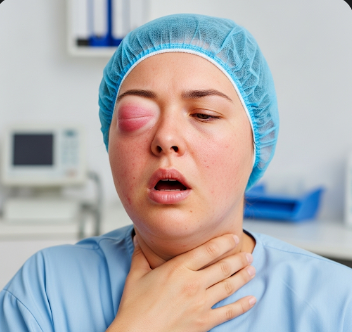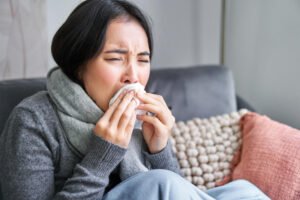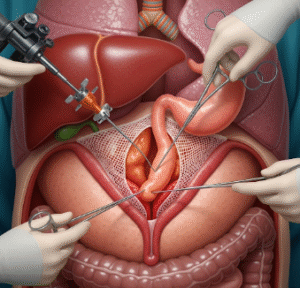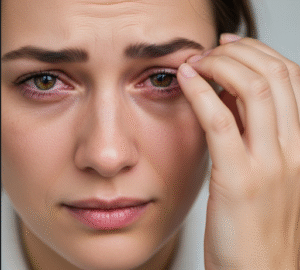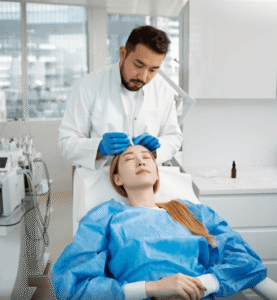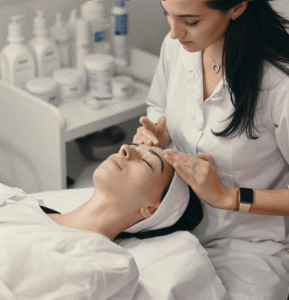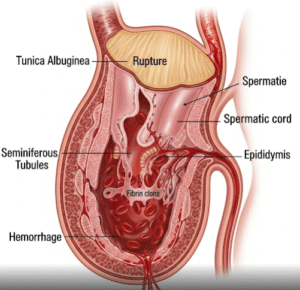Overview
An allergic reaction occurs when the body’s immune system overreacts to a normally harmless substance, known as an allergen. Common allergens include pollen, dust mites, certain foods, medications, insect stings, and pet dander. Allergic reactions can range from mild symptoms such as sneezing and itching to severe, life-threatening reactions called anaphylaxis.
In South Korea, hospitals and allergy clinics provide comprehensive care for individuals with allergies, including diagnostic testing, immunotherapy, and emergency management. Early identification and treatment are essential to prevent complications and improve quality of life.
Key Facts
Highlights:
➡️ Allergic reactions are immune system responses to harmless substances perceived as threats.
➡️ They can be acute, occurring within minutes of exposure, or delayed, appearing hours to days later.
➡️ Common allergens include pollen, dust, food, medications, insect stings, and latex.
➡️ Symptoms may affect the skin, respiratory system, gastrointestinal tract, or cardiovascular system.
➡️ South Korean clinics offer advanced diagnostics, immunotherapy, and emergency care for allergy management.
What is an Allergic Reaction?
An allergic reaction is a hypersensitivity response by the immune system to a substance that is normally harmless. When exposed to an allergen, the body produces immunoglobulin E (IgE) antibodies, which trigger the release of chemicals like histamine. This chemical release leads to inflammation, itching, swelling, and other symptoms associated with allergies.
Allergic reactions vary in severity. Mild reactions may cause localized symptoms such as hives, itching, or sneezing, while severe reactions like anaphylaxis can affect multiple organ systems and require immediate medical attention.
What Symptoms are Related to Allergic Reactions?
Symptoms of allergic reactions can affect various parts of the body:
- Skin: Hives, redness, itching, or eczema-like rashes
- Respiratory System: Sneezing, runny or blocked nose, coughing, wheezing, or shortness of breath
- Eyes: Itching, redness, tearing, or swelling
- Gastrointestinal Tract: Nausea, vomiting, abdominal pain, or diarrhea
- Cardiovascular System: Dizziness, fainting, low blood pressure (in severe cases)
- Severe Reactions: Anaphylaxis, characterized by throat swelling, difficulty breathing, rapid heartbeat, and loss of consciousness
What Causes / Possible Causes of Allergic Reactions?
Highlights:
➡️ Food Allergies: Nuts, shellfish, eggs, milk, wheat, soy, and certain fruits.
➡️ Environmental Allergens: Pollen, dust mites, mold, pet dander, and insect venom.
➡️ Medications: Penicillin, sulfa drugs, aspirin, and other medications.
➡️ Chemical Irritants: Latex, cleaning agents, cosmetics, and fragrances.
➡️ Genetic Predisposition: Family history of allergies or atopic conditions increases risk.
➡️ Immune System Dysfunction: Overreaction to normally harmless substances triggers symptoms.
When Should I See My Doctor?
Highlights:
➡️ If allergic reactions are recurrent or persistent.
➡️ If mild symptoms progress to swelling of the face, lips, or throat.
➡️ If shortness of breath, wheezing, or chest tightness occurs.
➡️ If there is dizziness, fainting, or rapid heartbeat, suggesting severe reactions.
➡️ For children, elderly, or individuals with chronic medical conditions experiencing allergic reactions.
➡️ For evaluation and management of food allergies, medication sensitivities, or environmental triggers.
Care and Treatment
Treatment for allergic reactions depends on the severity and underlying cause:
Highlights:
➡️ Avoidance of Allergens: Identifying and minimizing exposure to triggers.
➡️ Medications: Antihistamines, corticosteroids, decongestants, or leukotriene inhibitors for symptom relief.
➡️ Emergency Treatment: Epinephrine (adrenaline) for severe reactions or anaphylaxis.
➡️ Immunotherapy: Allergy shots or sublingual tablets to desensitize the immune system over time.
➡️ Lifestyle Adjustments: Use of air purifiers, hypoallergenic bedding, dietary changes, and protective measures.
➡️ Monitoring: Keeping a symptom diary to track triggers and response to treatment.
➡️ Patient Education: Training on the use of epinephrine auto-injectors and emergency preparedness.
Treatment Options in Korea
South Korea offers advanced care for allergic reactions in specialized allergy and immunology clinics:
Highlights:
➡️ Comprehensive Diagnostic Testing: Skin prick tests, blood tests (IgE levels), and patch testing to identify allergens.
➡️ Personalized Immunotherapy: Tailored allergy shots or sublingual treatments for long-term management.
➡️ Advanced Medication Management: Prescription antihistamines, corticosteroids, and biologic treatments for severe or chronic allergies.
➡️ Emergency Services: Hospitals equipped to manage anaphylaxis and severe allergic reactions.
➡️ Integrated Care: Collaboration between allergists, dermatologists, pulmonologists, and dietitians for holistic care.
➡️ Medical Tourism Support: Multilingual services, diagnostic testing, treatment plans, and follow-up care for international patients.
➡️ Patient Education Programs: Guidance on allergen avoidance, symptom management, and emergency preparedness.

